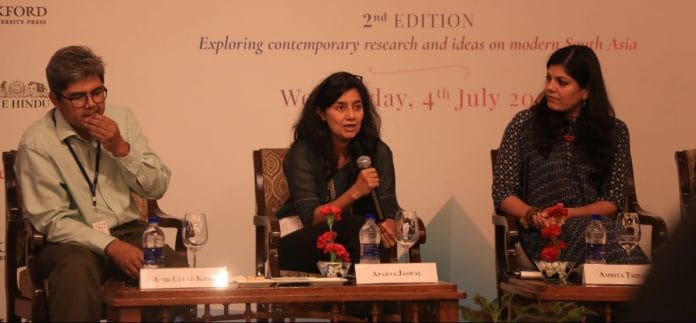At the South Asia Conclave 2018, panellists discuss the state of healthcare in India in the face of ‘inadequate funding’.
New Delhi: A rising diabetes burden and poor hospital penetration are some of the problems plaguing the Indian health sector, which experts allege hasn’t received the kind of government attention and funding it deserves.
“In the houses of power, we have never seen a debate on health,” said Amir Ullah Khan, a prominent development economist, as he opened a discussion on the state of healthcare in India at the afternoon session of the South Asia Conclave 2018.
Khan, former head of strategy at Bill and Melinda Gates Foundation, was among a panel of experts that also included Leena Menghaney, the south Asia head for Doctors’ Without Borders, Aparna Jaswal, additional director at Fortis Escorts Heart Institute, New Delhi, and Karan Thakur, general manager for PR at Apollo Hospitals, Delhi.
The session was moderated by author Amrita Tripathi, the founder and editor of The Health Collective, a platform to encourage conversations and awareness about mental health.
“For a long time, we worked on education, Indian economy, but rarely have we touched health in India,” said Khan.
“We still lack in our old problem of focusing more on demand rather than supply. What is even more shocking is that the number of doctors registered with the Medical Council of India actually dropped last year,” he said.
Dr Jaswal sought to draw attention to India’s growing disease burden. “India has become the diabetes capital of the world today. It is the responsibility of the agencies to deal with sanitation issues, communicable diseases, but we need to invest in preventive healthcare as a nation together,” she said.
Menghaney said while the “private healthcare system is here to stay”, the problems of the system can’t be ignored. “Problems of discrimination, lack of confidentiality and profiteering which plague the private system” need to be dealt with she added.
“Without addressing exclusion and marginalisation, we can’t move forward in healthcare,” Menghaney said.
Talking about rising healthcare costs for patients, especially those approaching private hospitals, she said, “The grave cases of overcharging have led to a big debate about quality in private sectors.”
On the Indian model of healthcare, Menghaney called for the government to provide “a certain package of essential drugs and healthcare, irrespective of an individual’s income”.
The debate on ‘quality and cost’ dominated the discussion, with the experts underlining the need to move from the “right to survive to the right to thrive’.
“We spend only 2 per cent of our GDP on healthcare, which is the lowest compared to our contemporaries. How do we deal with the lack of infrastructure and its availability and distribution across the country?” said Karan Thakur.
“When there is a pressure of a budget deficit, why is it that the healthcare gets cut?” Khan added.
Emphasising on the need to improve India’s public healthcare system, Menghaney concluded, “We need cost-effective models for quality healthcare and a case needs to be made for investing in the public healthcare system.”






